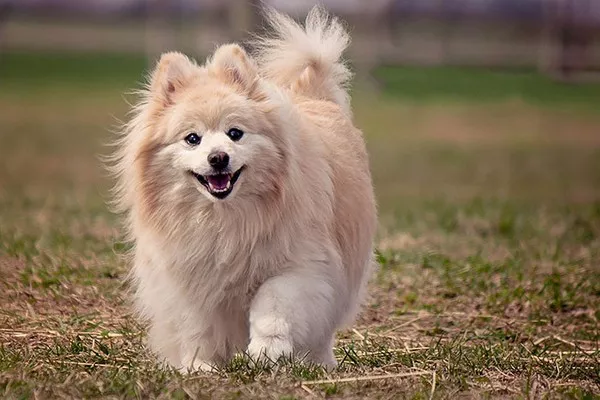Cocker Spaniels are beloved for their charming personalities, expressive eyes, and luxurious coats. As a dog owner, ensuring that your Cocker Spaniel receives the right nutrition is vital for their health, energy levels, and overall well-being. But what food do Cocker Spaniels eat to thrive? In this comprehensive guide, we will explore the dietary needs, recommended foods, and feeding tips for Cocker Spaniels to keep them happy and healthy.
Understanding Cocker Spaniel Dietary Needs
Before delving into specific food recommendations, it’s crucial to understand the dietary needs of Cocker Spaniels. These dogs are known for their active nature and playful disposition, which means they require a balanced diet to support their energy levels and maintain their ideal weight.
Here are some key factors to consider when determining what food is best for Cocker Spaniels:
Age: Cocker Spaniels go through different life stages, from puppyhood to adulthood and into their senior years. The nutritional requirements of a Cocker Spaniel will vary depending on their age.
Activity Level: Cocker Spaniels are active dogs that enjoy playtime and walks. The amount of exercise they get should be factored into their calorie intake.
Size: While Cocker Spaniels are not large dogs, their nutritional needs should still be adjusted according to their size.
Food Allergies or Sensitivities: Some Cocker Spaniels may have allergies or sensitivities to certain ingredients, so it’s important to be aware of any dietary restrictions.
Now, let’s explore the types of food that Cocker Spaniels can eat to maintain their health and vitality:
1. Commercial Dog Food: Dry vs. Wet
Commercial dog food is a convenient option for many Cocker Spaniel owners. These foods are formulated to meet the nutritional needs of dogs and come in two primary forms: dry kibble and wet canned food.
Dry Kibble: Dry dog food is popular for its affordability and convenience. Look for high-quality options with real meat as the main ingredient. Ensure it meets the specific needs of your Cocker Spaniel’s life stage (puppy, adult, or senior).
Wet Canned Food: Wet dog food can be a good choice for dogs that need extra hydration. It’s especially useful if your Cocker Spaniel doesn’t drink much water. Check the label for balanced nutrition and appropriate life stage suitability.
2. Homemade Dog Food:
Some Cocker Spaniel owners prefer to prepare homemade dog food to have more control over their pet‘s diet. If you choose this route, consult with a veterinarian or canine nutritionist to ensure you provide a balanced diet. Homemade meals should include a mix of lean proteins, vegetables, and carbohydrates.
3. Raw Diet:
A raw food diet, often referred to as a “BARF” (Biologically Appropriate Raw Food) diet, involves feeding your Cocker Spaniel raw meat, bones, and vegetables. While proponents of raw diets claim numerous health benefits, it’s essential to follow strict hygiene protocols to avoid foodborne illnesses.
What to Look for in Cocker Spaniel Food
When choosing food for your Cocker Spaniel, whether it’s commercial, homemade, or raw, consider the following factors:
Protein Content: Cocker Spaniels thrive on diets with high-quality protein sources like chicken, turkey, or fish. Protein helps support muscle growth and overall health.
Moderate Fat: Look for moderate levels of healthy fats to maintain your Cocker Spaniel’s energy and coat health. Omega-3 fatty acids are particularly beneficial for their skin and coat.
Limited Fillers: Avoid dog foods with excessive fillers like corn, wheat, or soy. These ingredients offer minimal nutritional value and can lead to allergies or sensitivities.
Fiber: Adequate fiber supports digestion and can help prevent common Cocker Spaniel health issues like constipation.
Avoid Artificial Additives: Choose foods that do not contain artificial colors, flavors, or preservatives.
Feeding Tips for Cocker Spaniels
Now that you know what type of food to provide, consider these feeding tips to ensure your Cocker Spaniel’s nutritional needs are met:
Portion Control: Cocker Spaniels are prone to obesity, so it’s crucial to measure their food portions and stick to a feeding schedule. Consult your veterinarian for guidance on the appropriate portion size.
Avoid Overfeeding: Resist the urge to overfeed your Cocker Spaniel with treats or table scraps. Excessive calorie intake can lead to weight gain and related health issues.
Fresh Water: Always provide access to fresh, clean water. Hydration is essential for overall health.
Regular Veterinary Check-Ups: Schedule regular check-ups with your veterinarian to monitor your Cocker Spaniel’s weight, health, and any dietary adjustments that may be needed.
Transition Gradually: If you switch your Cocker Spaniel’s food, do so gradually over a week to prevent digestive upset.
Conclusion
Cocker Spaniels are delightful companions that deserve a well-balanced and nutritious diet to support their active lifestyles. Whether you choose commercial dog food, homemade meals, or a raw diet, prioritize high-quality ingredients and portion control. Regular veterinary care and a watchful eye on your Cocker Spaniel’s health will ensure they enjoy a long, happy, and healthy life. Remember that individual dietary needs may vary, so consult with your veterinarian for personalized feeding recommendations for your Cocker Spaniel.
Recommended reading:

























